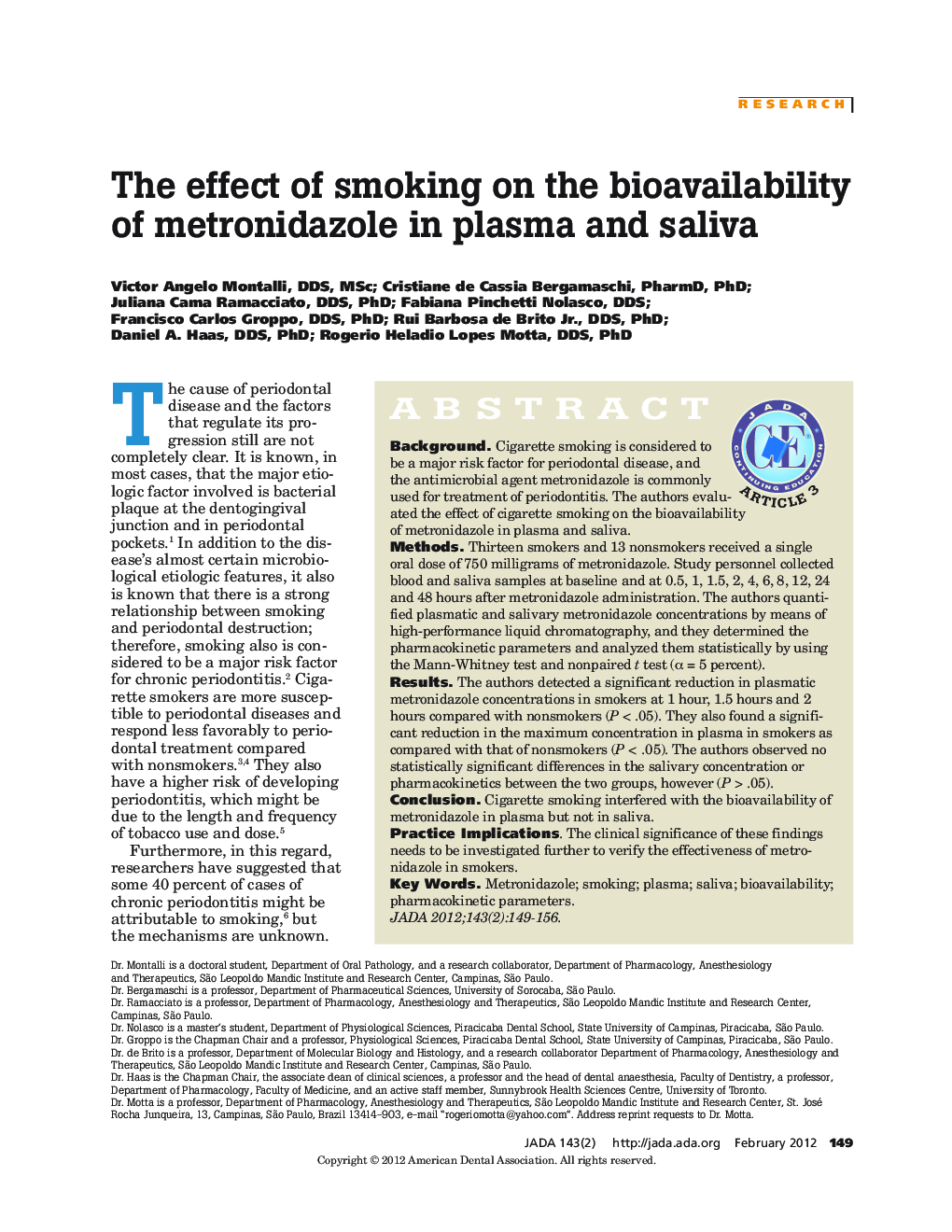| Article ID | Journal | Published Year | Pages | File Type |
|---|---|---|---|---|
| 3137953 | The Journal of the American Dental Association | 2012 | 8 Pages |
ABSTRACTBackgroundCigarette smoking is considered to be a major risk factor for periodontal disease, and the antimicrobial agent metronidazole is commonly used for treatment of periodontitis. The authors evaluated the effect of cigarette smoking on the bioavailability of metronidazole in plasma and saliva.MethodsThirteen smokers and 13 nonsmokers received a single oral dose of 750 milligrams of metronidazole. Study personnel collected blood and saliva samples at baseline and at 0.5, 1, 1.5, 2, 4, 6, 8, 12, 24 and 48 hours after metronidazole administration. The authors quantified plasmatic and salivary metronidazole concentrations by means of high-performance liquid chromatography, and they determined the pharmacokinetic parameters and analyzed them statistically by using the Mann-Whitney test and nonpaired t test (α = 5 percent).ResultsThe authors detected a significant reduction in plasmatic metronidazole concentrations in smokers at 1 hour, 1.5 hours and 2 hours compared with nonsmokers (P < .05). They also found a significant reduction in the maximum concentration in plasma in smokers as compared with that of nonsmokers (P < .05). The authors observed no statistically significant differences in the salivary concentration or pharmacokinetics between the two groups, however (P > .05).ConclusionCigarette smoking interfered with the bioavailability of metronidazole in plasma but not in saliva.Practice ImplicationsThe clinical significance of these findings needs to be investigated further to verify the effectiveness of metronidazole in smokers.
